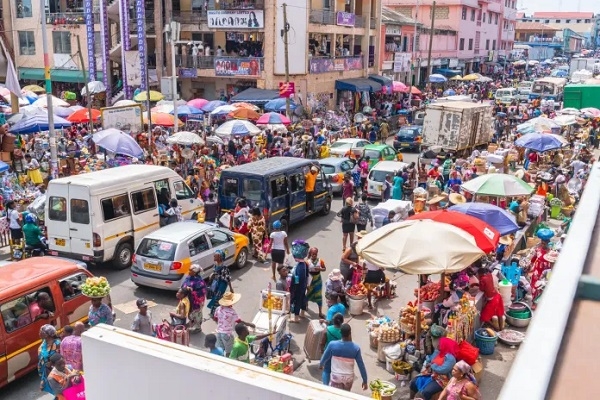GIS must sustain the exercise - Graphic Online
The rationale for the exercise, according to the institution, was to “repatriate undocumented foreign nationals humanely, and disrupt criminal networks that facilitate their operations in places such as Sabon Zongo, Nima, Abossey Okai and Obetsebi Roundabout, among others.”
The exercise resulted in the rounding up of at least 2,241 people, 1,332 of them classified as children, who have made begging for alms their main source of livelihood in the capital.
About 925 of the rounded-up beggars have so far been repatriated, while the rest are currently going through screening for repatriation.
For decades, our major cities, especially Accra and Kumasi, have seen migrants begging on roads, in vantage areas, and around shopping malls and public spaces.
Child beggars, oblivious of the dangers on roads, lurk at busy traffic intersections, pressing their faces to the screens of vehicles and adamantly soliciting alms.
When vehicle screens are rolled up, they make the requisite gestures with their hands and mouths, sometimes pointing to their stomachs, to indicate that they are hungry and want food.
What is most bothersome about their acts of solicitation is that, while drivers sometimes become apprehensive at intersections over the possibility of running over the legs of these little ones, who often run after vehicles in motion, their parents are seen in shaded areas, under trees or shrubs along roads, reclining and relaxed, showing no expression of anxiety about the potential dangers to which they expose their children.
On the way to shopping malls, they virtually accost passersby, clinging to their hands to compel them to give.
Although these behaviours are a bother to pedestrians and drivers, much more worrying is the nonchalant behaviour of their parents, who throw them out to beg, regardless of the dangers.
The Children's Act 1988 (Act 560), section 18(g) states that a child needs care and protection if that child is begging or receiving alms.
Thus, by the country’s laws, any child found begging needs help.
The Beggars and Destitutes Act (NLCD 392) further criminalises begging by prohibiting the act and designating it as a criminal offence.
With all these beautiful laws, one wonders why institutional and political authorities have not acted for all this time!
The Daily Graphic reported on a similar initiative in June 2022, when the government collaborated with the Embassy of Niger in Accra to repatriate over 1,600 beggars to Niamey in Niger, with plans to send back even more illegal migrants.
However, efforts have not been sustained. It appears officials retire for the night once a major swoop has taken place, and they receive the suitable media to report it.
The Daily Graphic believes by now the GIS has full understanding of the migration patterns of these children and their minders.
The Immigration Service must therefore collaborate with the countries whose citizens have gained notoriety for begging on the streets of Accra and the regional capitals.
We must also stem this tide of migrating children merely to beg.
The GIS must not turn this into a nine-day exercise.
This initiative must continue until Ghana has cities where begging does not occur.
The Social Welfare Department and the Ministry of Gender, Women and Social Protection must be involved in achieving a resolution to prevent a recurrence of this.
The Minister of Foreign Affairs and Regional Integration should also use his position to engage countries whose citizens enter the country with the sole aim of begging.
The government must strive to ensure that those who come in are productive and can help build our economy.
In extreme cases, the government must ensure that those who come in as destitute are well catered for.
Ghana is capable; let us end begging on the streets, especially by children.
You may also like...
Diddy's Legal Troubles & Racketeering Trial

Music mogul Sean 'Diddy' Combs was acquitted of sex trafficking and racketeering charges but convicted on transportation...
Thomas Partey Faces Rape & Sexual Assault Charges

Former Arsenal midfielder Thomas Partey has been formally charged with multiple counts of rape and sexual assault by UK ...
Nigeria Universities Changes Admission Policies

JAMB has clarified its admission policies, rectifying a student's status, reiterating the necessity of its Central Admis...
Ghana's Economic Reforms & Gold Sector Initiatives

Ghana is undertaking a comprehensive economic overhaul with President John Dramani Mahama's 24-Hour Economy and Accelera...
WAFCON 2024 African Women's Football Tournament

The 2024 Women's Africa Cup of Nations opened with thrilling matches, seeing Nigeria's Super Falcons secure a dominant 3...
Emergence & Dynamics of Nigeria's ADC Coalition

A new opposition coalition, led by the African Democratic Congress (ADC), is emerging to challenge President Bola Ahmed ...
Demise of Olubadan of Ibadanland
Oba Owolabi Olakulehin, the 43rd Olubadan of Ibadanland, has died at 90, concluding a life of distinguished service in t...
Death of Nigerian Goalkeeping Legend Peter Rufai

Nigerian football mourns the death of legendary Super Eagles goalkeeper Peter Rufai, who passed away at 61. Known as 'Do...



